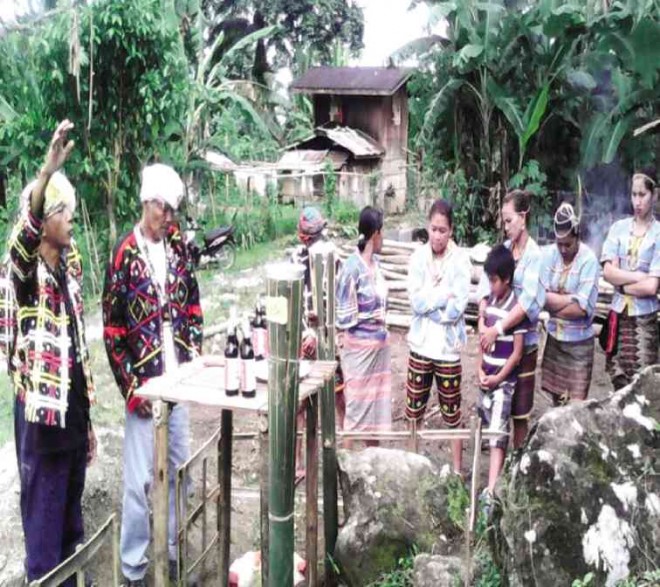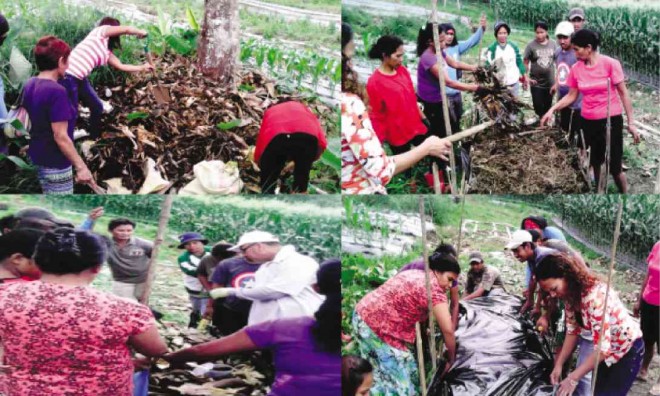Manobo farmers learn modern ways to farm
Most of the Manobos of Cotabato, who live within and around Mount Apo National Park, have always been farmers. But these days, they are going to school to learn about farming.
The Energy Development Corp. (EDC) set up the Madadma Learning Farm (MLF) in September in Cotabato to make the indigenous community’s traditional livelihood more financially rewarding.
Edilberto Serag, EDC project manager in charge of agriculture, and Rodolfo Ragrag Jr., Madadma project manager, say the school aims to help the Manobo community harness the potential of their ancestral domain and make their farms more productive.
Jessmar Campo, project officer of Mount Apo Foundation Inc. (Mafi), says Madadma refers to the “ancestral domain of the descendants of a great Manobo leader in the late 1800s, Datu Apao.” Madadma received its Certificate of
Ancestral Domain Title (CADT) in 2004 from the National Commission on Indigenous Peoples.
Campo says Madadma, totaling about 3,177 hectares, “claims most of the western side of Mount Apo National Park in the barangays of Ilomavis and Balabag in Kidapawan City and a portion of Barangay Kisandal in Magpet, Cotabato.”
Most of the Manobos in Madadma still use traditional farming methods, planting seasonal crops and leaving the land bare after harvest.
Beyond farming
The MLF, which runs three demo farms, introduces modern methods, new plants and crop rotation. It also makes available more disease- and pest-resistant planting materials.
But MLF’s goals go beyond making farming more productive. It aims to introduce other livelihood projects and transform them into business enterprises; engage in knowledge and skills transfer on production, marketing, financial management and values development; and put in place production, marketing/trading and financial management systems and controls.
Students, who spend an average of six months on the farm, learn not only about modern and alternative farming methods but also about management, administration and marketing.
They learn, for instance, the value of keeping records of dates, planting materials, etc.
While in school, MLF trainees receive an allowance to cover the days they spend away from their farms.
The school is open to both men and women, aged 18 to 50. Some women graduates, according to Serag and Ragrag, are now taking charge of production. On one farm, two women ensure the crops are protected from elements.
Serag and Ragrag say some technologies are adopted from other EDC sites. Bacolod shared a system for crop rotation, for instance.
While crops that students are familiar with, like corn, kamote and tomatoes, remain part of the training program, trainees are taught new methods of planting to ensure the plants’ survival and make them more productive. They are also planting other crops like Baguio beans, lettuce and other vegetables.
Harvesting technology that will enable them to provide quality produce to their markets is also taught. Instead of setting just one price for their produce, students sort out and classify their products so they can charge depending on quality.
Seed selection, seedling tray preparation and proper maintenance of planting materials are taught. Students are trained in drip irrigation that provides a steady and measured water supply to plants, mulching (covering or surrounding a plant with material like decaying leaves, bark or compost to enrich or insulate the soil) and proper use of chemicals after the seedlings have been transferred to the plots.
MLF trainees also learn that the plants cannot be left alone until harvest time to fight off pests and disease. They learn how to rid tomato plants of worms manually and inspect cornstalks for diseases, among other things.
The students are also trained in vermi (use of earthworms) and rapid composting to enrich the soil the natural way and reduce the use of chemical fertilizer.
MLF teaches the making of arc tunnels to protect plants, particularly newly planted seedlings, from too much rain or strong winds. Randy Bayawan Biyong, a marketing officer for MLF, says crops in traditional Manobo farms are uncovered, making them vulnerable to the elements.
Serag and Ragrag say MLF has found cheaper but equally sturdy materials to substitute for the more expensive steel frames of the arc tunnel. The materials are also more readily available when communities need to replace old ones.
But Serag and Ragrag also point out that while MLF teaches, it also tries to learn from its students. They say they want to know what traditional Manobo farming practices—which are primarily natural, organic and chemical-free—can be adopted and included in the school’s program.
Madadma, after all, is a learning, not teaching, farm.
















